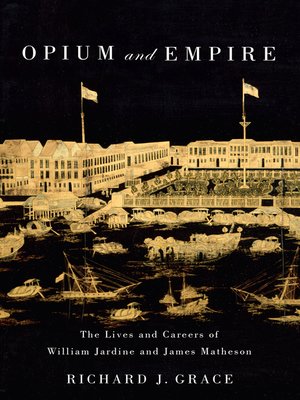Opium and Empire
ebook ∣ The Lives and Careers of William Jardine and James Matheson
By Richard J. Grace

Sign up to save your library
With an OverDrive account, you can save your favorite libraries for at-a-glance information about availability. Find out more about OverDrive accounts.
Find this title in Libby, the library reading app by OverDrive.



Search for a digital library with this title
Title found at these libraries:
| Library Name | Distance |
|---|---|
| Loading... |
In 1832 William Jardine and James Matheson established what would become the greatest British trading company in East Asia in the nineteenth century. After the termination of the East India Company's monopoly in the tea trade, Jardine, Matheson & Company's aggressive marketing strategies concentrated on the export of teas and the import of opium, sold offshore to Chinese smugglers. Jardine and Matheson, recognized as giants on the scene at Macao, Canton, and Hong Kong, have often been depicted as one-dimensional villains whose opium commerce was ruthless and whose imperial drive was insatiable. In Opium and Empire, Richard Grace explores the depths of each man, their complicated and sometimes inconsistent internal workings, and their achievements and failures. He details their decades-long journeys between Britain and China, their business strategies and standards of conduct, and their inventiveness as "gentlemanly capitalists." The commodities they marketed also included cotton, rice, textile goods, and silks and they functioned as agents for clients in India, Britain, Singapore, and Australia. During the First Opium War Jardine was in London giving advice to Lord Palmerston, while Matheson was detained under house arrest at Canton in the spring of 1839, an incident which helped prompt the armed British response. Moving beyond the caricatures of earlier accounts, Opium and Empire tells the story of two Scotsmen whose lives reveal a great deal about the type of tough-minded men who expanded the global markets of Victorian Britain and played major roles in changing the course of modern history in East Asia.







